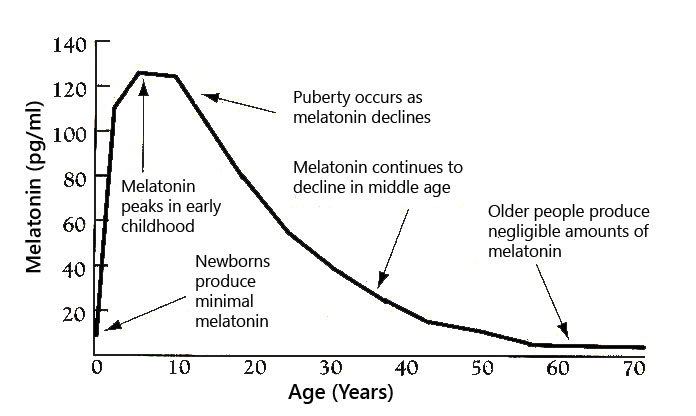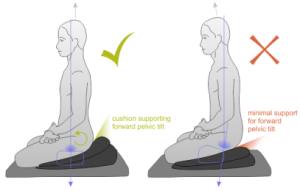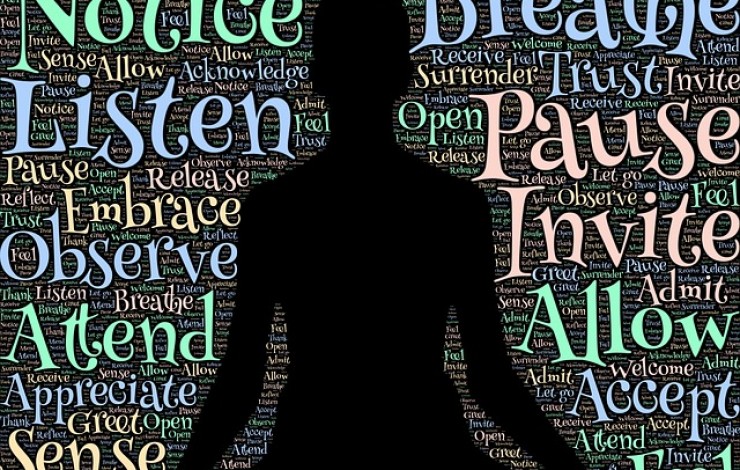Meditation – How It Will Benefit Your Life
A Change in Perception
Not too long ago, western medicine shied away from any treatment for patients other than those that had a history in the medical community. That meant that chiropractic care, meditation, acupuncture and other alternative types of medicine were not prescribed, and patients instead were treated with a variety of prescription medications and treatments.
That has slowly changed over the past several decades, as a change in perception by both the public and the medical community began to openly accept the alternative treatment modalities. Today, insurance companies are even covering these “alternative” treatment protocols, recognizing that many patients will benefit from these practices.
But acceptance of meditation wasn’t taken on faith alone.
Instead, there is scientific evidence that shows the benefits of meditation using scientific evidence. It has to do with the science of brainwaves, and evidence pointing to how Alpha waves are able to help you attain a relaxed mental state. Meditation is able to help us achieve a deeper, inner peace that helps us achieve an Alpha state. Click here to learn more about entering an Alpha State.
In addition, studies have shown that deep meditative states help produce changes in chemicals in the brain. This could help to explain why meditation is helpful in reducing perceived pain, or used as an adjunct in treating different types of addictions.
With regard to helping to reduce pain, one study showed that as little as one hour of meditation training was able to significantly reduce not only the experience of pain, but pain-related brain activation as well. There was a 40% reduction in pain intensity, and a 57% reduction in the unpleasant feeling of pain.
This is especially true as people are shifting from medication to meditation.
The Internet is Helping Raise Awareness
With the advent of people gaining a broadening access to the Internet, many people are finding out about the benefits of meditation, along with concrete information on how to meditate as well. This has helped meditation explode over that past decade. Millions of people are now practicing meditation, recognizing that meditation is not only good for the mind, but for overall health as well.
Different aspects of the impact of mediation on the body include the ability to control stress while enhancing the body’s immunity. This was demonstrated in a study from Harvard Medical School that showed improved mitochondrial energy production, consumption and resiliency in individuals practicing meditation.
Other clinical studies have shown that meditation reduces blood pressure. By helping to reduce stress, meditation has helped reduce high blood pressure with resulting reductions in medication. The studies show that relaxation achieved through meditation helps produced the formation of nitric oxide, which helps to dilate blood vessels. Patients were also able to demonstrate that they recovered faster from stressful situations using meditation.
The benefits of meditation don’t stop at the body.
The mind benefits greatly as well. Various studies by practitioners showed that meditation helps improve mental strength, resilience and emotional intelligence. The relaxed state achieved through meditation helps the brain process information better, allowing better decision-making to occur while helping to bolster concentration.
Other Benefits to the Mind from Meditation
Some people simply have a problem staying focused and paying attention. It is thought that this is due to an inability to keep from being distracted. One study from Emory University in Atlanta showed that people who had meditation experience were able to stay more focused and were able to pay attention better than those who had no experience with meditation.
Research has also shown that meditation has the ability improve mood and a feeling of well-being. People who had undergone stressful situations and subsequent bad moods underwent meditation training, and all found improvement in their moods as well as their psychological well-being.
Another benefit of meditation is the ability to deal with stressful situations. One study that was conducted at the India Institute of Medical Sciences showed that if people practiced meditation prior to a stressful event, the adverse effects that stress caused were considerably minimized.
How Does Meditation Work?
Our body produces melatonin, a naturally occurring hormone that regulates our sleep cycle. It’s also a powerful anti-inflammatory and antioxidant that helps to prevent and treat a variety of illnesses. People who have problems with sleep are thought to have a deficiency in melatonin.
As we get older, melatonin production decreases, and is related to a variety of age-related disorders. In order to regain the melatonin our body is no longer producing, we have to spend more and more time in total darkness. This is not an easy task, due to light pollution that comes from streetlights, television screens and computer tablets. As a result, melatonin production suffers.

One way around this is to meditate in total darkness just prior to going to sleep. Try to meditate at the same time each evening. Eliminate as many distractions as possible, and if needed, use earplugs to suppress noise or use earphones with soothing music to help you relax. Another option is to utilize guided meditation.
Slow Down
How much stress do you deal with day in and day out? If you’re like most people, you’re multitasking, trying to move your career forward while dealing with relationships, money concerns, kids and so much more. Your zooming through each day at 100 miles an hour!
Meditation helps you slow down, take a time out and become aware of your thoughts. Best of all the benefits that you gain from meditating are immediate. Meditation helps your mind examine the thoughts you try to process during stressful times and gain a realistic picture of how those thoughts actually impact you. Meditation has also been shown to help with better decision making and boosting problem solving abilities, while improving memory and creative thinking skills.
A lot has been written about the benefits of meditation, especially in the area of emotional well-being. There are also many different scientific studies about how meditation benefits us both physiologically as well as psychologically. In fact, there are more than 3,000 scientific studies that have been published.
Rather than delve into articles with a lot of scientific jargon, here is a listing of the key emotional benefits people derive from meditation:
- reduces anxiety and worry
- reduces stress while minimizing depression
- boosts self-esteem
- reduces pain perception
- helps with relaxation and awareness
- improves social connections
- enhances overall mood
Different Types of Meditation
The most basic form of meditation is simply to meditate on your own. But there are many different types of meditation, one of which may be better for you than others. Many types of meditation are based on the traditions founded by Buddhism, Taoism, Hinduism, Kabbalah and others.
In western culture, meditation takes on different meditation practices than found in eastern or religious type of meditation. These include:
Sound-based mediation:
A specific sound, or mantra, becomes the focal point of the meditation, with different sounds producing different vibrations within the body. The most common mantra used is Om, considered a primordial sound. When meditating, you simply repeat the sound and then let your mind focus inward, allowing you to connect with your true self.
Guided meditation:
A trained teacher helps guide you through your meditation, either in person or by using a video, the Internet or an audio recording. Using this technique helps stimulate different sights and sounds, and the teacher encourages you to document your experiences, using a journal, for example. Guided meditation, like other forms of meditation, helps put you in a very relaxed state, which helps to open your subconscious to positive suggestions. Guided meditation helps relieve stress and helps you gain a deeper appreciation of life through a very relaxing and enjoyable experience.

Mindfulness meditation:
This type of meditation is based on the Buddhist discipline known as vipassana, which empowers you to be the observer of your thoughts and images. You sit in relax position with your eyes closed, focusing on your breathing. It focuses on the present moment, paying attention to thoughts without passing any judgment on them. By using mindfulness meditation daily, you will be more present in your own life, while helping you achieve inner calm as you face unpleasant parts of daily life.
Transcendental meditation:
This meditation style was popularized by the Maharishi Mahesh Yogi in the 1960’s, and uses a special mantra that is designed to help you achieve deep peace by detaching oneself from anxiety while embracing harmony and self realization.
Ok, How do you Begin?
There are as many different ways to meditate, as there are types of meditation. Most experts agree that you should practice your meditation at the same time each day, and often the same place as well.
Here’s something else: find a place that is unique to your meditation experience. Don’t meditate in the same area you watch television or eat dinner in. And have the items that you are attracted to available in your space; this could be special sounds, or smells like candles or incense - whatever you need to help you achieve maximum relaxation should be readily accessible.
Another decision that you’ll have to make is what time commitment you’re willing to devote to meditation. Will it be 15 minutes? 30 minute? And how many days can you commit to; once per week, every-other-day or daily?
These are all decisions you need to arrive at prior to beginning your meditation journey, in order to make it as effective as possible for you. Once you do decide on the amount of time and the number of days, stick with it!
Regardless of the type of meditation you wish to practice, one of the keys is to get comfortable. This may mean having a favorite position, such as sitting cross-legged on the floor, or in a straight-backed chair maintaining good posture.
Another recommendation by practitioners of meditation is keep a journal. This is not just for those doing guided meditation, but all types of meditation. By comparing how you feel on different days and under different circumstances, you’ll discover many new things about yourself.
 When meditating, try to keep yore body in alignment. Imagine a line drawn down from your head, through your neck and down to your spine – all in perfect alignment. This helps to reduce the stress level on your body, since it won’t have to work hard to be in balance. It also helps to keep you to keep from becoming tired and falling asleep.
When meditating, try to keep yore body in alignment. Imagine a line drawn down from your head, through your neck and down to your spine – all in perfect alignment. This helps to reduce the stress level on your body, since it won’t have to work hard to be in balance. It also helps to keep you to keep from becoming tired and falling asleep.
The rest of mediating is all about your mind. As a novice to meditation, you have no formal training to use for meditating, and your mind is going to fight you in the beginning. St. Teresa of Åvela once said, “the mind before meditation is like a wild horse.” The analogy continues with the thought that as you begin meditation your mind tries to throw you – preventing you from “breaking” it in to meditation. Ultimately though, you want to have your mind “broken in” so you can move forward with meditation.
So what stands in people’s way to prevent them from pursuing meditation? The usual roadblocks for beginners in meditation fall into two distinct categories: the ones who insist on being “perfect,” and give up after only a few days because they became distracted.
The other category is people who are indifferent about keeping up their schedule and are frustrated because they haven’t seen immediate benefits from the time that they’ve put in.
One of the best ways to start your meditation routine is to start with short intervals. Trying a 10-minute session is a lot better than sitting down to an hour session. Remember, your mind will be fighting you on this, and a shorter session gives you the opportunity to train your mind by using short intervals. If you feel you’ve achieved a little success, the next session will be easier – and can be longer.
Here’s another way to look at meditation – it’s kind of like beginning an exercise program. You’re not going to step into a health club or gym and commit to lifting 200 pounds on your first day. Instead, you start out with smaller weights and work your way up as your muscles develop.
During your first few sessions...
Your mind will drift and try to prevent you from achieving relaxation. Don’t give up! And don’t give in to the tricks your mind will play. That’s where mantras or breathing can help maintain your focus. When you realize that you’re not focusing on your relaxation techniques and your mind is wandering, move yourself back to center and continue with your meditation. The more you do this, the more successful you’ll become at meditation.


